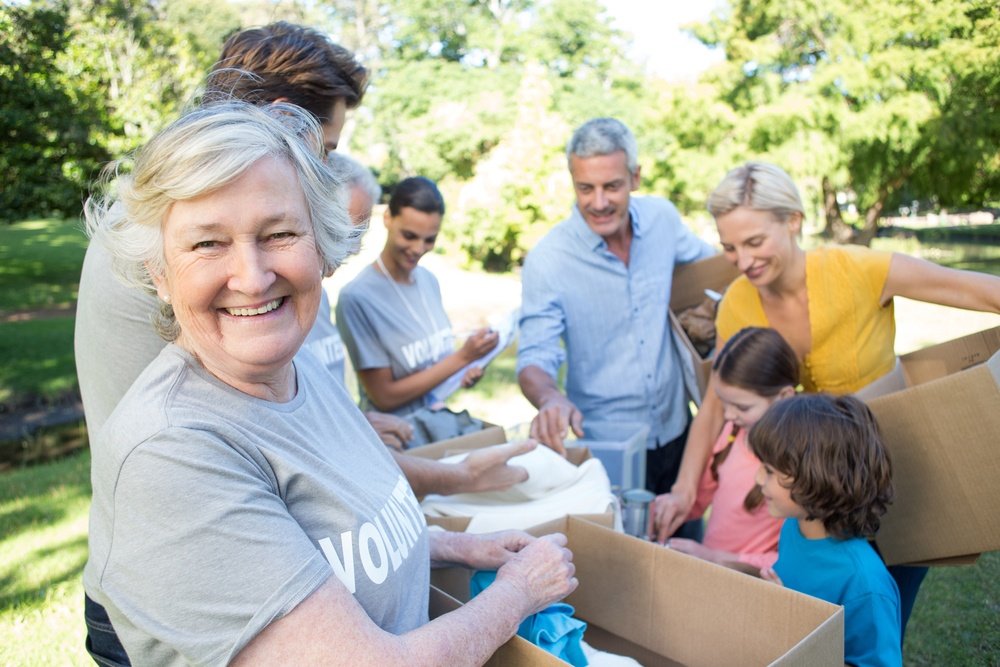Business
How Community Benefit Agreements are helping local communities
CBAs ensure that any infrastructure development project benefits the local community and meets the needs of the residents.

Problems facing municipal governments continue to compound. Constrained budgets make it almost impossible to address many critical community needs. Additionally, city leaders are faced with a paradox—how to develop a rundown area without pushing out the residents who have lived in the area for many years. Gentrification is sweeping through major cities creating controversy and strife and also many community benefits.
Some areas, such as the neighborhood adjacent to Los Angeles’ Skid Row, have seen a 95 percent increase in median household income over the past few years. However, the neighborhood’s original residents have been dispersed, and there are dozens of critical needs that require attention. To address this growing community concern, developers, working with city leaders, are negotiating various types of Community Benefit Agreements (CBAs).
CBAs are contracts signed by community groups and developers that require specific amenities for the local community when major projects are launched. The agreements are meant to ensure that the projects benefit local workers, citizens and residents. Specific amenities are guaranteed to areas so that citizens are rewarded.
CBAs first appeared in the U.S. in the early 2000s. However, the agreements are more abundant now because of budget constraints and critical community needs that cannot be addressed otherwise. CBAs, in fact, are extremely popular today.
Each agreement is negotiated between community coalitions and developers and the benefits are tailored to meet specific community needs. CBAs often result in the addition of community parks, daycare centers and/or job training facilities.
A few years ago, Detroit voters approved a law requiring developers of projects over $75 million to commit to certain housing, hiring or other related benefits. As a result, a $108 million project planned in the Lafayette Park neighborhood will not only bring 374 new residential units and parking to the neighborhood but also a number of attractive amenities. Twenty percent of the new units will be designated for affordable housing use and more than 50 percent of all construction hours required will be performed by verified Detroit residents.

With CBAs, infrastructure developments at the local communities would often include amenities for the benefits of the residents. (Photo by DepositPhotos)
After plans for the largest skyscraper on the West Coast fell through, the city of Portland and its economic development organization began working on another massive plan for the city’s old post office. The plan includes transforming the space into 2,400 apartments which will result in 4,000 jobs. The new mixed-use development space might appear unremarkable to some, but the resulting community benefit agreement is beyond remarkable.
The city wants each resident in the new facility to receive a free transit pass from the developer. The passes would ensure that all residents can use public transit at no cost. Portland officials and the developer are still negotiating the exact details of the plan.
Last month, Seattle released details of its latest agreement with a private developer for the new Seattle Center Arena project. The project budget is more than $700 million to $100 million over the original projected construction cost. As a result, the city is requiring the developer to contribute $2.5 million to an affordable housing project and $10 million to YouthCare, the homeless youth assistance program. Additionally, the arena must be rent-free for community events and a task force will decide how best to utilize an additional $10 million for community benefits.
As debates over a proposed soccer stadium rage on in Austin, Texas, a potential developer is negotiating terms of a community benefit agreement with city leaders. The developer may be required to set aside a one-acre site for 130 affordable housing units, host youth soccer camps, contribute $3,303,030 to local charities, provide scholarships for students, donate equipment and gear to local underprivileged sports teams and allow the stadium to host five civic-oriented events each year. Developers may also be required to contribute 2,500 volunteer hours annually to local charitable organizations. Some city officials have hinted that the agreement will include $95,879,908 in community benefits.
This trend is evident throughout the U.S. CBAs are the new “hot topic” for many municipal leaders.
A list of established CBAs can be found here.
(Featured image by DepositPhotos)
—
DISCLAIMER: This article expresses my own ideas and opinions. Any information I have shared are from sources that I believe to be reliable and accurate. I did not receive any financial compensation in writing this post, nor do I own any shares in any company I’ve mentioned. I encourage any reader to do their own diligent research first before making any investment decisions.

-

 Biotech1 week ago
Biotech1 week agoByBug Turns Insect Larvae into Low-Cost Biofactories for Animal Health
-

 Business5 days ago
Business5 days agoDow Jones Breaks 50,000 as Bull Market Surges Amid Caution and Volatility
-

 Business2 weeks ago
Business2 weeks agoBattered, but Still Bullish on Gold & Silver
-

 Impact Investing3 days ago
Impact Investing3 days agoEU Backs 90% Emissions Cut by 2040 and Delays ETS2 Rollout


























You must be logged in to post a comment Login